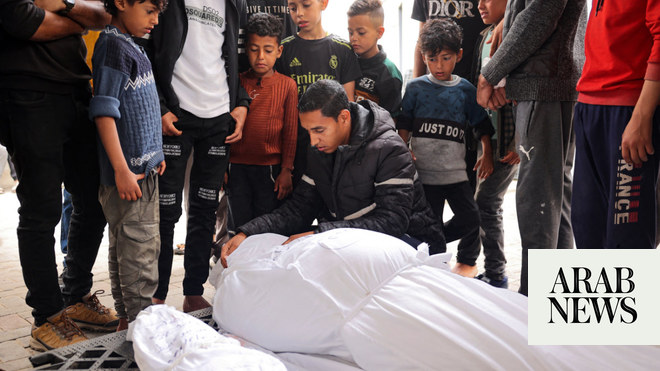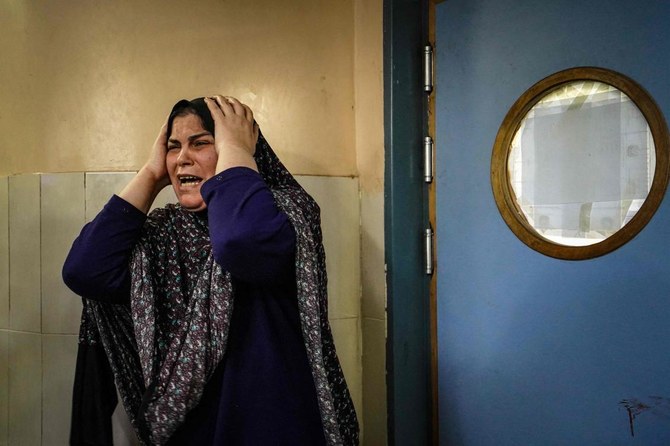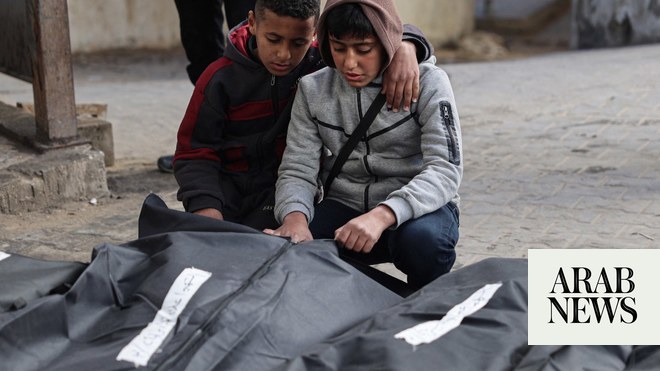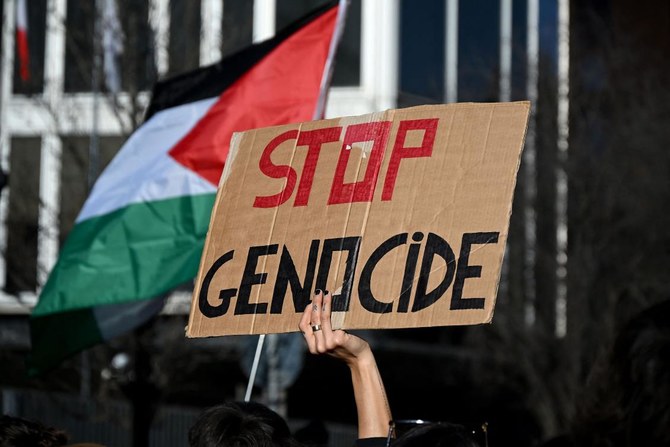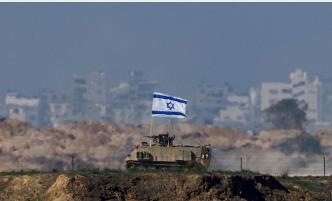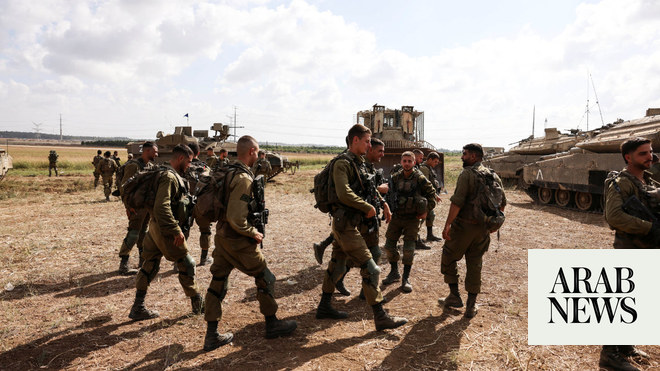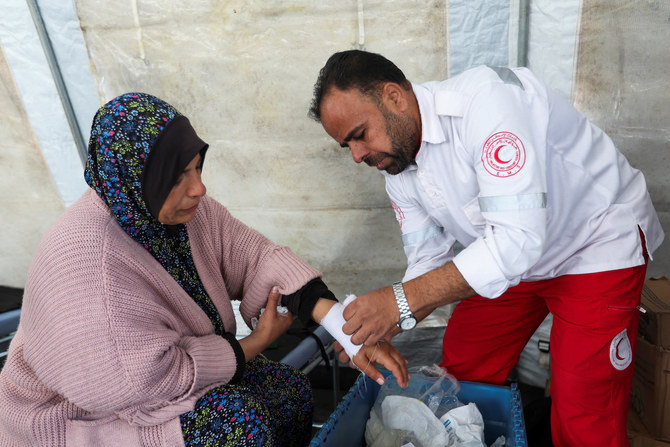
Witnesses said Israel had stepped up air strikes on Gaza City in the north, and bombarded parts of Khan Younis in the south
Relations between Tehran and Washington are also tense after the deaths of three US soldiers in a drone strike in Jordan
GAZA/DOHA: Israeli forces carried out new air strikes in Gaza on Wednesday as Hamas studied a new proposal for a ceasefire and the release of hostages held in the Palestinian enclave.
Witnesses said Israel had stepped up air strikes on Gaza City in the north, and bombarded parts of Khan Younis in the south, despite what appeared to be the most serious peace initiative for months in the Israel-Hamas war.
World powers hope to prevent a wider conflict, but tensions in the Middle East remained high after Yemen’s Iran-aligned Houthis said they would keep attacking US and British warships in the Red Sea in solidarity with Palestinians.
Relations between Tehran and Washington are also tense after the deaths of three US soldiers in a drone strike in Jordan that US officials blame on Iran-backed militants. Washington has not yet outlined its response, but Iran’s Revolutionary Guards said on Wednesday they would respond to any US threat.
Gaza health authorities said 26,900 Palestinians had been killed — including 150 over the past 24 hours — in the war that was triggered after Hamas fighters stormed from Gaza into Israeli towns on Oct. 7 killing 1,200 and taking 253 hostages.
Israel’s military said its forces had killed at least 25 Palestinian militants in Gaza in the past 24 hours, and that three Israeli soldiers had been killed — taking to 224 the number of troops killed during Israel’s ground offensive.
Smoke rose above Gaza City after the latest air strikes, some of which targeted the headquarters of the Hamas-run interior ministry, Hamas-run media and residents said.
The Al-Nuseirat refugee camp in central Gaza also came under fire and tanks pounded areas of Khan Younis around Nasser Hospital, the largest still functioning in the south, witnesses said.
DETERIORATING HEALTH SYSTEM
As the health system deteriorates, Palestinian medics say they have formed field medical points to help reach front lines, as treating the wounded in Khan Younis has become increasingly difficult amid street battles and artillery strikes.
“There’s a lot of injuries among the displaced who were in the industrial quarter and some schools,” said Nassim Hassan, the head of the Emergency Unit at Nasser Hospital, adding that “many of the injured left loaded on carts, tuk-tuks, cars or even on foot.”
Much of the densely populated Gaza Strip has been devastated by almost four months of Israeli bombardment, and most of its 2.3 million residents have been uprooted by fighting that international aid agencies say has caused a humanitarian crisis.
Thomas White, the agency’s Director of Gaza Affairs, said in a video that UNRWA had been forced to move its operations out of Khan Younis to the west of the city.
“We’ve lost a health clinic, major shelters — facilities that were supporting the people of Khan Younis,” said White.
The Red Crescent said on Tuesday Israeli forces had stormed Al-Amal hospital in Khan Younis and asked displaced people and staff to evacuate at gunpoint. An Israeli military spokesperson denied this.
The Red Crescent said on Wednesday a 75-year-old woman and a 45-day-old girl had died at Al-Amal after suffering a lack of oxygen for several days, and been buried in the hospital compound. Israel did not immediately comment on the report.
Health officials in Gaza say the situation has been complicated by Israeli allegations that some staff from the UN refugee agency for Palestinians (UNRWA) were involved in the Oct. 7 attack on Israel, prompting some countries including the United States to pause funding to the agency.
THREE-STAGE TRUCE
A senior Hamas official told Reuters the Gaza ceasefire proposal involved a three-stage truce, during which Hamas would release the remaining civilians among hostages captured on Oct. 7, then soldiers, and finally the bodies of dead hostages.
The proposal followed talks in Paris involving intelligence chiefs from Israel, the US and Egypt, with the prime minister of Qatar.
Palestinians welcomed the possibility of a ceasefire but said fighting must end permanently.
“Any ceasefire that doesn’t end the war and return us to our homes in Gaza City and the north is not worth it,” Ahmed, who fled his home in Gaza City for Rafah in the south, said by telephone. “We are exhausted.”
Israeli Prime Minister Benjamin Netanyahu repeated his vow not to pull troops out of Gaza until “total victory.”
Israel says it will not stop fighting until Hamas is eradicated. Hamas says it will release its remaining captives only as part of a wider deal to end the war permanently.
The conflict has triggered concern of an escalation in an already tense region.
The US and Britain have carried out strikes on Houthi targets in Yemen over the group’s attacks on Red Sea shipping, but the Houthis’ military spokesperson said on Wednesday the group would continue what it called acts of self defense.
With tensions also high over Saturday’s drone attack on US service members in Jordan, the US says it has decided how to respond but has not said how.
Iran-aligned Iraqi armed group Kataib Hezbollah has said it is suspending all its military operations against US troops in the region, but Iran remained resolute.
Iranian Revolutionary Guards chief Hossein Salami said no US threat would be left unanswered, and Foreign Minister Hossein Amirabdollahian said: “The US has to stop its threats and focus on a political solution.”




